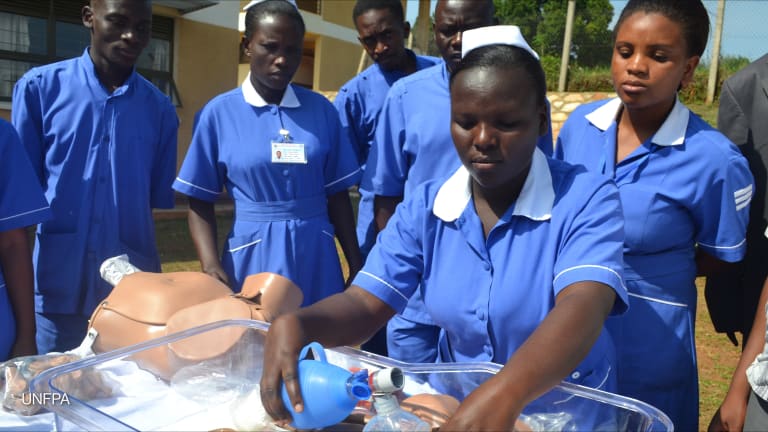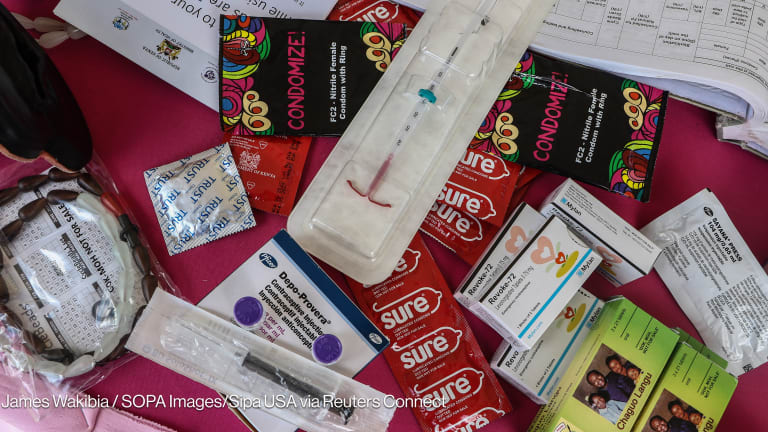Sitting on a bench at a reproductive health clinic in one of the poorest parts of Madagascar’s capital city of Antananarivo were two nervous, pregnant 16-year-old girls. No longer in school, unsure how their lives were about to unfold, and preparing for the toll childbirth would have on their small bodies — thrust into premature adulthood when they’re still just kids.
They each walked about 40 minutes to the clinic — it’s the only free, one-of-its-kind clinic within a three-mile radius. They couldn't afford to pay for services at a clinic closer to their homes.
Printing articles to share with others is a breach of our terms and conditions and copyright policy. Please use the sharing options on the left side of the article. Devex Pro members may share up to 10 articles per month using the Pro share tool ( ).








